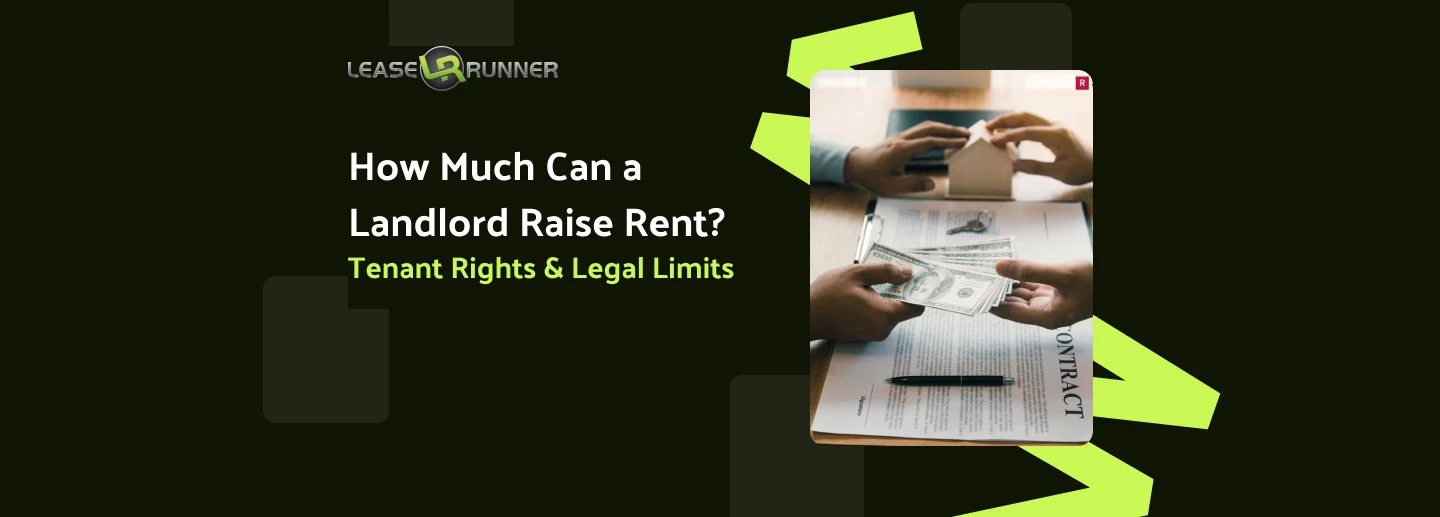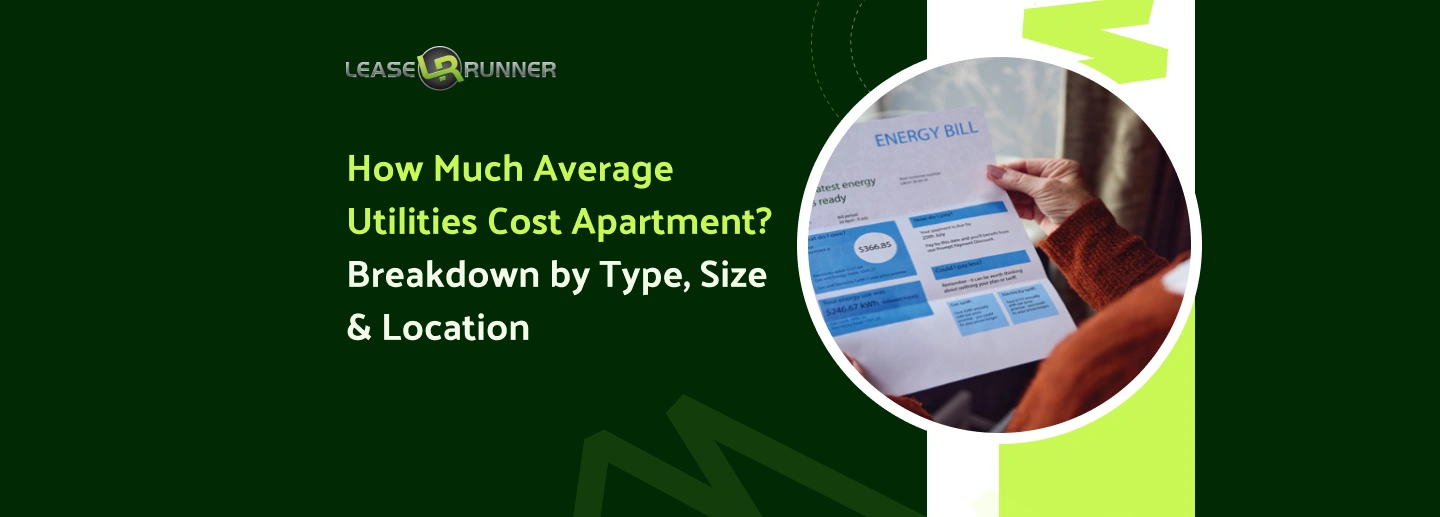Understanding how much can landlord raise rent is essential for both tenants and property owners. In today’s evolving rental market, knowing the legal limits and best practices around rent increases can help prevent disputes and ensure fair treatment for everyone involved.
Whether you are a tenant concerned about unexpected price hikes or a landlord planning to adjust your rental rates, this comprehensive guide explains everything from landlord tenant laws rent increase to negotiation tactics.
Throughout this article, we’ll explain how much a landlord can raise rent and provide insights into key factors such as local laws, notice period for rent increase, and the reasons behind it.

Below is a table of quick facts summarizing the three most-searched criteria on this topic:
By understanding how much a landlord can raise rent and the various factors involved, you will be better prepared to navigate rent adjustments, whether you’re a tenant or a landlord.
Can a Landlord Raise Rent Every Year?
Yes, in many cases, a landlord can raise rent annually, but it depends on local laws and the terms of the lease. For example:
- Fixed-term leases (like 12 months): Rent usually stays the same until the lease ends. A landlord can only raise it when offering a renewal.
- Month-to-month leases: Landlords can typically increase rent with proper written notice, often 30–60 days in advance.
- Rent control or rent-stabilized areas: Some cities limit how much can landlord raise rent and how often rent can be raised.
So, while landlords may raise rent each year, they must follow the lease agreement and comply with local or state regulations.
Rent-controlled areas vs non-rent-controlled areas
In rent-controlled or rent-stabilized areas, landlords face strict limits on how much can landlord raise rent each year. The percentage of increase is often set by a local housing board, which means tenants are protected from sudden or steep hikes.
In non-rent-controlled areas, landlords generally have more freedom to raise rent, as long as they provide the proper notice and follow state or city laws. This often results in higher rent increases, especially in competitive housing markets where demand is strong.
Exceptions when rent cannot be raised
Even in places without rent control, how much can landlord raise rent has limits in practice. For example:
- During an active lease term: Rent must remain the same until the lease expires.
- Discriminatory or retaliatory reasons: Landlords cannot raise rent to punish tenants for filing complaints or asserting their legal rights.
- Improper notice: If the landlord fails to give the legally required written notice (often 30–60 days), the increase may not be valid.
- Local emergency laws: Sometimes, governments freeze rent increases during crises, such as natural disasters or public health emergencies.
Why Do Landlords Raise Rent? 5 Signs Your Rent Might Increase Soon
Landlords raise rent for several reasons, and knowing these can help you anticipate changes. Key reasons include:
- Rising Operating Costs: Increased property taxes, maintenance expenses, and utility costs can prompt landlords to adjust rent.
- Market Adjustments: In high-demand markets, such as areas with stringent Seattle (city of Washington D.C) rent increase laws, landlords might raise rent to reflect current market rates.
- Improvements and Renovations: Upgrades to the property often lead to higher rent.
- Inflation: As the cost of living rises, rent increases are a natural response.
- Regulatory Changes: New local regulations may permit or require rent adjustments.
If you are wondering how much can a landlord raise rent, consider these factors. Landlords typically communicate planned increases via a rent increase notice or similar documents to keep tenants informed. Understanding why landlords raise rent can help you better plan your budget or negotiate terms.
How Much Can Landlords Raise Rent Each Year Legally?

Determining how much can landlord raise rent legally involves understanding both market conditions and the regulatory environment.
Average annual rent increase in the U.S.
Over the past five years (up to mid-2024), rental prices in the U.S. have risen by about 21.2%, according to Realtor.com. This reflects the typical rent increase per year in a non-regulated market. Some metro areas like Tampa–St. Petersburg–Clearwater and Miami–Fort Lauderdale–Pompano Beach saw nearly 40% increases, largely because those states do not restrict rent hikes (MarketWatch). . National data from the U.S. housing market trends also shows how broader market conditions continue to drive rental price growth across different regions.
States with rent increase caps (CA, OR, NY)
Some states and cities in the U.S. have implemented rent increase limits (known as rent control or rent stabilization) to protect tenants from excessive price hikes.
- Oregon: Oregon was the first state to pass a statewide rent control law in 2019. Under this law, landlords can only increase rent by a maximum rent increase percentage of 7% plus the Consumer Price Index (CPI). In 2025, due to high inflation, the rent increase cap in Oregon has risen to about 10%.
- California: California also has a statewide rent increase limit, known as AB 1482. This law caps rent increases at 5% plus the local inflation rate, with a maximum annual increase of no more than 10%.
- New York: While New York doesn't have a statewide rent control law, many large cities, especially New York City, have very strict rent stabilization programs. These programs regulate annual rent increases for hundreds of thousands of apartments.
In addition, New Jersey allows its cities to set their own rent control laws, and many have limited annual increases to just 2-4%.
States without rent increase limits
While some states have strict regulations, a majority of the Southern and Central states in the U.S. completely prohibit rent control. In these states, the free market determines rental prices, and landlords are free to raise the rent as they see fit, as long as they comply with the terms of the lease agreement and federal law. This is where you'll find the maximum allowable rent increase without rent control is often unlimited.
- Texas and Florida: These two states are prime examples of having no rent increase limits. Here, landlords can raise the rent without being restricted by state regulations. This means tenants must rely on the terms outlined in their lease agreement to know about the timing and amount of any potential rent increase.
To make things clearer, here’s a breakdown of the maximum rent increase rules across different states in 2025:
How Often Can a Landlord Raise Rent?
When asking how much can landlord raise rent in terms of frequency, the answer depends on lease type, state law, and rent control rules. There isn’t a single nationwide rule—regulations vary widely across the U.S.
Rent increase rules for month-to-month leases
For month-to-month agreements, landlords generally have more flexibility to increase rent compared to fixed-term leases. However, these increases must still comply with strict regulations regarding notice periods and frequency. The idea that rent can be increased "once every rental period" (e.g., every 30 days) is not accurate for many locations, as several states have longer notice requirements to protect tenants.
Notice Period:
- A 30-day notice is a common rule, but it's not universal. Many states and cities require a longer notice period.
- For example, in California, if the rent increase is 10% or less, a landlord must give 30 days' notice. If the increase is more than 10%, the notice period extends to 90 days.
- In Florida, landlords must provide at least 15 days' written notice before increasing rent on a month-to-month tenancy.
- Colorado law requires landlords to provide at least 60 days' notice before a rent increase takes effect.
Rent increase rules for fixed-term leases
For fixed-term leases, such as those for 6 months or 1 year, landlords are generally not permitted to increase the rent during the term of the lease unless a specific clause in the agreement allows it. These clauses may be:
- Escalation clause – allows for automatic increases during the lease term.
- Cost-of-living adjustments (COLA) – ties increases to inflation rates.
A landlord can only increase the rent when the current lease is ending. The new rate and the required notice period must comply with local law.
Understanding these intervals helps clarify how often a landlord should raise rent and informs your expectations regarding future increases.
Chicago-specific rules
In Chicago, the rules about how much can landlord raise rent are shaped by both Illinois state law and the Chicago Fair Notice Ordinance. Unlike some states that impose rent control, Illinois law prohibits local rent control, meaning there are no legal limits on how much or how often a landlord can raise rent. However, landlords must follow strict notice requirements before any increase can take effect.
For month-to-month rental agreements or renewals, the frequency of rent increases depends on the notice a landlord provides. According to the Chicago Fair Notice Ordinance, tenants who have lived in their unit for less than six months must be given at least 30 days’ notice before a rent increase. Tenants who have been in the unit for six months to less than three years are entitled to 60 days’ notice, while tenants who have rented for three years or more must receive 120 days’ notice. If the landlord fails to give proper notice, the tenant has the right to continue paying the old rent amount during the notice period.
For fixed-term leases, such as a one-year lease, landlords generally cannot increase the rent during the term unless the lease agreement includes a specific clause that allows it, such as an escalation clause or a cost-of-living adjustment (COLA) provision. In practice, this means most tenants with fixed leases will only see rent increases when it’s time to renew.
While Chicago does not cap rent increases for most properties, there is an important exception. Units that are part of the Chicago Low-Income Housing Trust Fund Program (CHLITP) are subject to stricter limits, and landlords in this program cannot raise rent by more than 5% annually. This rule protects vulnerable tenants while still allowing some adjustments for rising costs.
Notice Requirements for Rent Increase By State in the U.S

California
California law requires landlords to provide written notice for any rent increase. The amount of notice depends on the size of the increase.
- 30 days' notice for an increase of 10% or less.
- 90 days' notice for an increase of more than 10%.
Washington
For month-to-month tenancies or leases with a renewal term, landlords must provide a minimum of 60 days' written notice for a rent increase. Some local jurisdictions may have stricter rules.
Colorado
Colorado law requires landlords to provide written notice for any rent increase. The notice period is tied to the lease type.
- 60 days' notice for a month-to-month lease.
- For a fixed-term lease, the landlord must provide notice before the end of the lease if they plan to increase the rent upon renewal.
Texas
Texas has no state law dictating a specific notice period for rent increases. Landlords must follow the terms outlined in the lease agreement. If a lease does not specify a notice period, the general rule is to provide reasonable notice, which is typically considered to be at least 30 days.
New York
New York law requires a tiered notice period for rent increases based on how long a tenant has lived in the unit.
- 30 days' notice for tenants who have occupied the unit for less than one year.
- 60 days' notice for tenants who have occupied the unit for one to two years.
- 90 days' notice for tenants who have occupied the unit for two or more years.
Florida
In Florida, the notice period for a rent increase depends on the type of tenancy.
- 15 days' notice for a month-to-month lease.
- For a fixed-term lease, the landlord can only increase the rent at the end of the lease term, with notice provided as specified in the lease agreement.
Illinois (Chicago)
Chicago's Fair Notice Ordinance provides specific protections that differ from the rest of Illinois. The required notice period for a rent increase or non-renewal is based on the length of the tenancy.
- 30 days' notice for tenants who have lived in the unit for less than 6 months.
- 60 days' notice for tenants who have lived in the unit for more than 6 months but less than 3 years.
- 120 days' notice for tenants who have lived in the unit for 3 years or more.
Nevada
Landlords in Nevada must provide a minimum of 60 days' notice for a rent increase, regardless of the tenancy type. If the rent increase is for a week-to-week tenancy, the notice period is shortened to 7 days.
Tenant Rights When Facing a Rent Increase
Tenants often ask how much can landlord raise rent and what rights they have in response. Common protections include:
- Right to Proper Notice: Landlords must provide written notice—typically 30–90 days in advance—or the increase may be invalid.
- Limits and Rent Control: In many areas, rent increases are capped; elsewhere, they must still follow notice rules.
- Lease Terms: Rent cannot be raised during an active lease unless contract allows.
- Right to Dispute or Negotiate: Tenants can challenge increases, ask for lower amounts, or delay implementation.
- Legal Redress: Rent control laws may allow appeals to tribunals or rent boards if increases are excessive.
- Protection from Retaliation or Discrimination: Increases cannot be used as retaliation or based on unfair criteria.
- Habitability Matters: If property violates safety or health standards, rent hikes may be contested.
- Access to Support: Tenant advocacy groups and legal aid are available to assist.
- Practical Steps: Review lease, collect documents, negotiate, consult laws, and seek help when needed.
Knowing these rights ensures tenants can respond effectively when asking how much can landlord raise rent applies to their situation.
Can a Landlord Raise Rent While a Lease is Active?
For fixed leases, the short answer is no. But in rare cases—like escalation clauses or major renovations—how much can landlord raise rent may apply mid-lease. Always check lease terms and state laws.
When a Landlord Cannot Raise Rent
If you are in a fixed-term lease, your landlord is not allowed to increase the rent until the lease period ends. The terms of your lease are designed to provide stability, ensuring that the rent remains the same throughout the agreement unless a specific provision permits changes.
When a Landlord Can Raise Rent Mid-Lease
In certain situations, a landlord may raise the rent before the lease expires. This is possible if your lease includes an escalation clause or if specific conditions, such as major property improvements, are met.
In any such case, the rent adjustment must strictly follow the terms set out in the lease and comply with applicable laws, including any required advance notice.
Understanding these distinctions helps both tenants and landlords know exactly when a rent increase is allowed and ensures that any changes occur fairly and legally.
Best Practices for Landlords When Raising Rent
Raising rent is a normal part of property management, but it needs to be handled carefully. The way you approach it can determine whether tenants stay or leave, and whether the process runs smoothly or ends in conflict. By following best practices, landlords can ensure increases are fair, legal, and well-received.
Understand Local Laws and Market Conditions
Before adjusting rent, landlords must understand both legal requirements and market realities.
- Check Local and State Laws: Every state and city has its own landlord-tenant rules. Some areas have rent control or rent stabilization laws that restrict how much and how often rent can be raised. Ignoring these regulations could lead to fines or legal disputes.
- Know the Notice Period: Most jurisdictions require written notice before a rent increase takes effect—commonly 30, 60, or 90 days, depending on local law and the type of tenancy. Providing less notice than required can make the increase unenforceable.
- Analyze the Market: Conduct a comparative market analysis. Review similar units in your neighborhood—same number of bedrooms, bathrooms, amenities, and location. This ensures your pricing is competitive and gives you a clear justification for the change.
Example: If nearby one-bedroom apartments rent for $1,500 and your unit is $1,300, you could reasonably increase to $1,450. Presenting this as a market alignment shows tenants the adjustment is fair.
Communicate Early and Transparently
How you communicate a rent increase is just as important as the amount itself.
- Explain the “Why”: Be clear about the reasons behind the change. Whether it’s rising property taxes, higher insurance, maintenance costs, or upgrades, tenants are more likely to accept the increase if they understand the logic.
- Give More Notice Than Required: While the law sets minimum notice periods, offering additional time is a sign of respect and builds trust. It also gives tenants more flexibility to adjust their budget or make housing decisions.
- Highlight Improvements: If you’ve made recent upgrades—new appliances, fresh paint, landscaping improvements—be sure to point these out. Tenants see the added value and are more willing to pay a higher rent.
Strategize for a Win-Win
Large, sudden rent increases may seem profitable short term, but they often drive tenants away—costing you more in vacancies and turnover. A smarter approach is steady, reasonable adjustments.
- Keep It Reasonable: Avoid sharp hikes that create financial strain for tenants. Vacancy costs—lost rent, cleaning, advertising—can quickly outweigh the benefit of a higher rent.
- Offer Incentives: Encourage renewals with small perks, such as a minor upgrade, a complimentary cleaning service, or a discount for signing a longer-term lease.
- Aim for Consistency: Small, predictable increases each year are easier for tenants to handle than one large jump every few years. This stability helps them budget and improves tenant retention.
Example: Instead of jumping from $1,500 to $1,800 after two years, increase by 5% annually. At $1,575 in year one and $1,650 in year two, you achieve nearly the same income, but tenants are far less likely to move out.
Bottom Line
As you plan for the future, understanding how much can landlord raise rent will help you budget and negotiate better lease terms. In that case, use this guide as a resource to protect your financial interests and plan ahead.
Besides, we also recommend reviewing your lease terms carefully and consulting local laws to protect your interests. For more information, feel free to refer to our LeaseRunner blog for more useful advice and tips.
FAQs
Q1. What is the maximum rent increase allowed?
It depends on location. In Oregon and California, laws limit how much can landlord raise rent annually. In Texas and Illinois, there are no limits.
Q2. How much advance notice for rent increase is required?
Most areas require landlords to provide a specific advance notice for rent increases, usually between 30 and 60 days, to give tenants adequate time to adjust their budget or consider other options. Without proper notice, how much can landlord raise rent is restricted by law.
Q3. How often should a landlord raise rent?
Typically, landlords review rent on an annual basis or at the end of a lease term. In month-to-month arrangements, increases might occur more frequently, but any change must adhere to local regulations and lease stipulations.
Q4. Can a landlord increase rent due to property improvements?
Yes. In this case, how much can landlord raise rent is tied to the scale of the improvements and legal notice rules. Renovations and upgrades, especially those that enhance the value or habitability of the property, are a common reason for a rent increase.
Q5. What states have rent control laws in the U.S.?
Nationwide, very few states have statewide rent control laws. The majority of rent control regulations are at the city or county level. The states with some form of statewide rent control or rent stabilization include:
- California: California's AB 1482 places a limit on rent increases for most properties.
- Oregon: Oregon's statewide rent control law limits annual rent increases to 7% plus the Consumer Price Index (CPI).
- New York: While not a statewide law, New York has comprehensive rent control and rent stabilization programs that cover hundreds of thousands of apartments, primarily in New York City and surrounding areas.
- New Jersey: New Jersey allows its cities to enact their own rent control ordinances, and many have done so.
- Maryland: Similar to New Jersey, Maryland allows counties and cities to pass rent control laws, though few have.
Q6. Is there a rent increase limit in Illinois?
No, there is no rent increase limit in Illinois. Illinois law prohibits rent control across the state. This means a landlord can legally raise the rent by any amount they choose.
Q7. Is there a limit on rent increases in Texas?
No, there is no limit on rent increases in Texas. Like Illinois, Texas law does not have statewide rent control. Landlords can increase the rent by any amount. The only restrictions are that the landlord must provide a written notice of the increase and that they cannot raise the rent during the term of a fixed-term lease.







